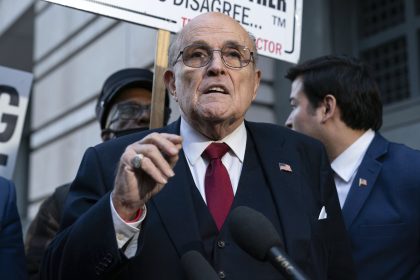California Amps Up Crypto Protections

SACRAMENTO, Calif. — Regulating cryptocurrencies has been top of mind for many lawmakers and regulators across the country as prices fluctuate and scams become even more common.
In California, the Department of Financial Protection and Innovation has been cracking down on cryptocurrency-related complaints since 2020 when a law gave it oversight over any financial institution, including crypto assets. And a May 2022 executive order by Gov. Gavin Newsom paved the way for the department and other state agencies to create regulations specifically for crypto assets to the fullest extent of that 2020 law.
“Gov. Newsom’s executive order recognized the promise and the importance of the crypto economy to California,” while also acknowledging the risks for consumers, said Adam Wright, senior counsel of the department’s Office of Financial Technology Innovation, who is working on these new protections.
It’s all part of a state-wide approach with the department working in conjunction with the Governor’s Office of Business and Economic Development and the Business, Consumer Services and Housing Agency to enact Newsom’s order. It followed President Joe Biden’s March executive order that ordered the Treasury and multiple other agencies to learn more about cryptocurrencies and potential regulation.
“There is recognition that for the benefit of both the crypto economy of California and the effectiveness of rules in this space that California should be harmonized with federal authorities and should be harmonized with state authorities the best that we can,” Wright said in an interview Wednesday.
Wright’s office is specifically looking at how crypto assets are used for financial purposes. California is unique in financial regulation because securities and banking are all under the purview of the Department of Financial Protection and Innovation.
“So we have to be especially thoughtful in rules we impose on money transmission, and we have to be cognizant of how that affects other aspects of what we regulate, like securities or banking,” Wright said.
Right now his office is listening to businesses and consumers in the crypto space to ensure a fair approach to regulation, he said. His office is also setting up both public and private meetings, as well as accepting comments via email.
One of the most helpful tools for crafting these rules will be the official complaints against companies that the department is getting, Wright said.
“We’re also getting really smart at looking at complaints, really studying our complaints to see what’s happening in California now,” he said.
Crypto-assets don’t typically come with the same advisory that bank loans do, laying out that residents using those financial services have recourse when a company acts improperly, Wright said. So, the state is educating people more about that ability, as well as cryptocurrencies in general to avoid scams, he said, as part of the overall regulatory approach.
And while the state is figuring out the exact regulations to enact on the industry, residents can still get help dealing with those companies from the state, he said.
“For any regulator, you should be responsive to complaints. So, we’re going to be tracking complaints. We want to get as many complaints as we can. We want Californians to know there’s an agency who is going to help them resolve those because we can [work] with companies,” Wright said.
And as the state wants to ensure its regulations are in line with federal laws, there will be a California twist ensuring residents’ values are upheld, he said.
By soliciting so much public comment, the department will develop a sense of California values and ensure they “are reflected in consumer protection, from consideration of climate risk to consideration of inclusive information, equity focuses and protection. Those are areas in which we expect to contribute to the conversation and be able to set standards and hold companies accountable,” Wright said.
Madeline can be reached at [email protected] and @MadelineHughes
























